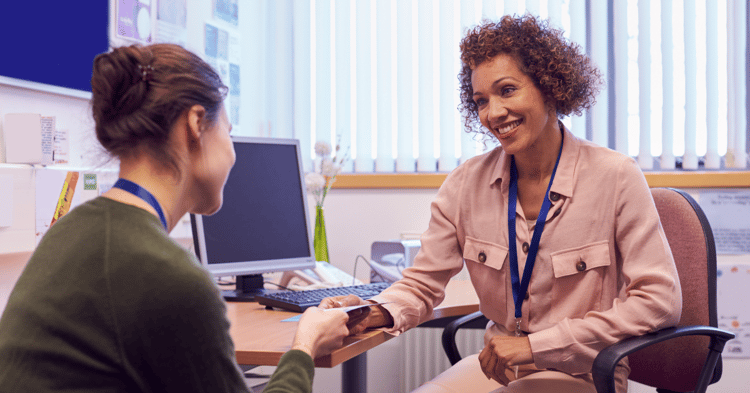Mind and Mouth: Why the Conversation about Mental Health Should Include Oral Health

There’s no mental health without oral health—and vice versa.
People living with mental health challenges, especially those with severe mental illness or eating disorders, are at greater risk of oral health problems. The reasons are myriad: poor oral hygiene and nutrition (as a result of depression or self-neglect), substance use, financial barriers to care and stigma. Even the use of prescribed psychotropic medications, which often list “dry mouth” as a side effect, can exacerbate oral health issues. All told, people with severe mental illness are 2.7 times more likely to lose all their teeth compared to the general population.
On the flip side, poor oral health can also contribute to poor mental health. Dental anxiety can intensify mental health conditions as missing or delaying dental appointments can be harmful to oral health. Tooth decay or missing teeth can negatively impact self-image, contributing to stress, anxiety or depression. If your mouth holds you back from finding a job, smiling, or hanging out with the people you love, chances are good that your mental health will be affected.
In an unlikely partnership, Adrienne Lapidos, PhD, and Danielle Rulli, RDH, MS, DHSc, joined forces to research how oral health and mental health can be improved through integration. Lapidos serves as a clinical assistant professor at the University of Michigan Department of Psychiatry, and Rulli serves as the director of the Graduate Dental Hygiene Program and a clinical associate professor of dentistry at the University of Michigan School of Dentistry.
The Delta Dental Foundation (DDF) spoke with them to learn more about the Peer Oral Health Initiative, funded in part by the DDF.
In many community mental health settings, certified peer support specialists (CPSS) aid a person-centered recovery journey. CPSS have lived experience with serious mental illness or substance use disorder, and they receive special training to help them advocate for their clients. This lived experience means CPSS can often reach different people and communities than clinicians, which is crucial when it comes to supporting behavioral change.
As part of the Peer Oral Health Initiative, Rulli and Lapidos decided to leverage the skills of CPSS to incorporate oral health education into a client’s behavioral health recovery. The first step? Training the CPSS on basic oral health issues. The CPSS in this project initially noted that oral health stigma is so strong that dental issues were difficult to talk about—and because at times they themselves had poor oral health, they didn’t feel comfortable discussing dental care with their clients. To address this challenge, Rulli and Lapidos worked with McMillen Health to design adult oral health recovery resources.
The McMillen Health curriculum, designed in an easy, plain language format to reach individuals of all education and literacy levels, helped increase the skills and comfort level of CPSS providers to bring oral health into the conversation. Those receiving resources participate in a two-hour oral health training and practice motivational interviewing techniques as shared in the curriculum.
Lapidos and Rulli are still gathering data to measure the effectiveness of the program, but one thing is certain: They're just scratching the surface of the opportunities to make dental health part of mental health care. By raising awareness and connecting people who’ve been through recovery with the people who are just starting their journey, they are working toward change one step at a time.
In the future, the hope is that every patient seeking care for mental health also receives dental care as a matter of course. By focusing on whole health instead of just one aspect, it can mitigate or avert more serious issues. The goal is to eliminate both mental health stigma and oral health stigma so that everyone can seek care without hesitation.
For patients and CPSS, taking care of oral health is the beginning of a process to address existing issues and give people a smile they’re proud to share with the world.
